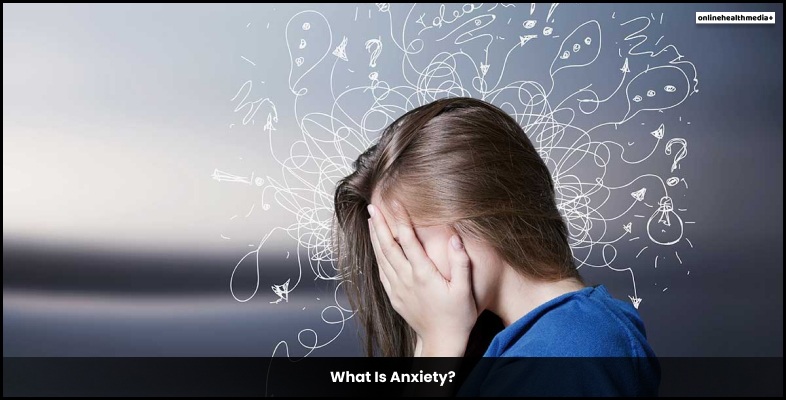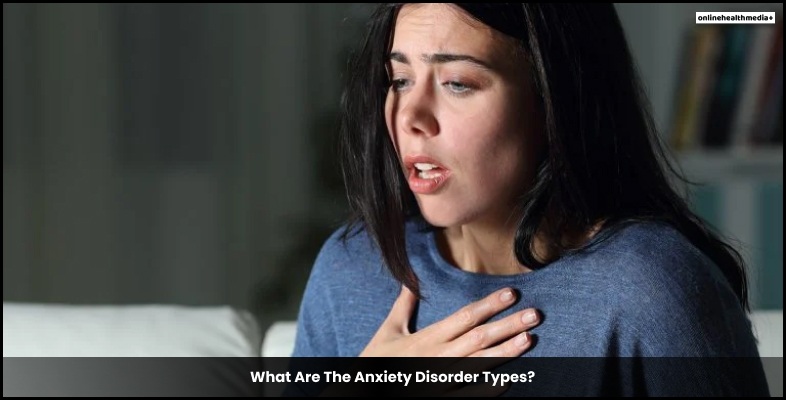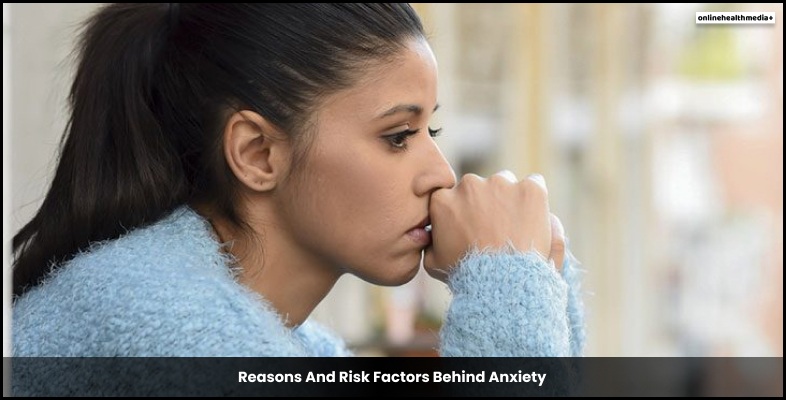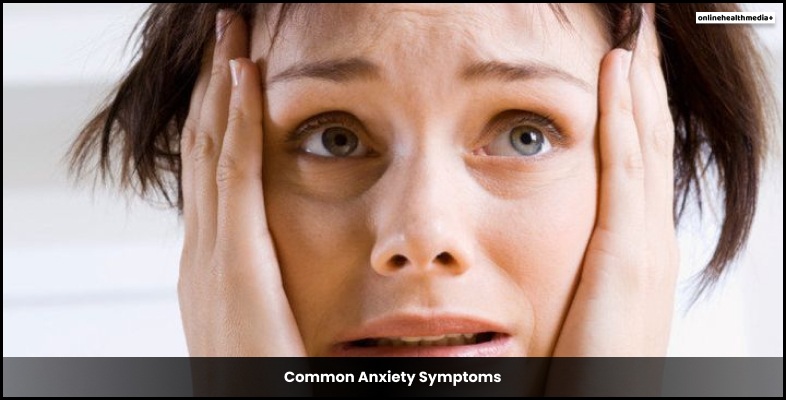What Is Anxiety? Types, Causes, Symptoms – Can Anxiety Disorders Be Cured?
Anxiety is part and parcel of everyone’s life nowadays. It’s quite normal to experience occasional anxiety, but the problem starts when this becomes a persistent issue. The moment when anxiety starts affecting daily activities and becomes uncontrollable, it’s called Anxiety Disorder. If you’re here looking for information on Anxiety causes, symptoms, types, etc. you’re at the right place today. We have jotted down all the necessary facts you need to know about Anxiety Disorder.
Stay tuned with us, and keep scrolling to read till the end.
Contents
What Is Anxiety?

Let’s start with a simple definition of anxiety.
What Is Anxiety?
It’s a normal reaction to stressful situations and is needed sometimes but gets dangerous if left unmanaged. This feeling differs from normal nervousness and involves unimaginable anxiety, fear, helplessness, and insecurity accompanied by physical issues also. If you don’t treat anxiety on time, it will get aggravated and ruin your personal and professional life.
You may like to read: How To Reduce Anxiety Naturally?
What Are The Anxiety Disorder Types?

Several types of anxiety disorders together form a group of mental illnesses. These collaboratively cause constant overwhelming fear and anxiety. Eventually, troubles set in when this excessive anxiety makes you avoid school, work, social events.
The extent and nature of anxiety vary from one type of anxiety to another! We have detailed 6 major types of Anxiety disorders in the below list:
-
Generalized Anxiety Disorder
Unnecessary fear and tension with little or no reason at all.
-
Social Anxiety Disorder
Self-consciousness or overwhelming worries during particular social situations like gatherings, family functions, etc.
-
Panic Attack Disorder
Intense, sudden fear with sweat, chest pain, palpitations, choking, feeling of heart attack, trembling feet or hands.
-
Agoraphobia
Intense fear and insecurity of being in a place from where you can’t escape easily; for example train, metro, crowded road, airplane, etc.
-
Medication-Induced Anxiety Disorder
Sometimes, illegal drugs or some special medications trigger some symptoms of excessive fear.
-
Separation Anxiety
It is the insecurity of leaving your closest persons like Parents, children, love of life, spouse, etc. Separation anxiety involves the bonding of love, emotions, and affections.
What Are The Possible Reasons And Risk Factors Behind Anxiety?

If you ask about causes of anxiety, researchers are still unsure about this. However, some aspects come more under the limelight:
-
Brain Chemistry
Sometimes, faulty circuits in the brain control the rise and fall of emotions, fear, tension, etc.
-
Previous Life Experiences
If some stressful events have already happened with you previously, that experience still lingers with you. When you anticipate similar situations again, anxiety steps in. For example, neglect and non-recognition at work, childhood abuse, betrayal, etc., can trigger your emotions repeatedly.
-
Substance Use
Some particular drugs and Alcohol tend to aggravate the insecurity, fear, and emotions among substance users.
-
Medical Conditions
Sometimes, thyroid, lungs, and heart conditions can cause similar disorders that fuel the symptoms at their worst level.
Apart from these, some risk factors that make you more vulnerable to anxiety disorders are as follows:
- Childhood sexual abuse.
- History of mental health illness.
- Post Traumatic Stress Disorder.
- Substance Abuse.
- Negative life events and challenging situations.
- Low self-esteem.
What Are The Common Anxiety Symptoms?

Do you feel like not eating or sleeping when you are deeply afraid of something?
Do you feel nauseous while you get nervous?
Even, do you experience shortness of breath and feel like someone is choking you?
If the answer to all the above questions is Yes, then you are most WELCOME to the world of anxiety. However, the symptoms may change depending on the type of Anxiety disorder you have.
Some of the common symptoms include:
- Sleep problems.
- Nausea.
- Shortness of breath.
- Not being able to stay calm.
- Breathing faster.
- Dizziness.
- Unable to concentrate.
- Cold, Numb, Sweaty feet or hands.
- Trembling limbs.
- Gastrointestinal problems leading to loss of appetite.
- Feeling tired and weak unnecessarily.
What Are The Treatments For Anxiety Disorder?

Get this very clear that although Anxiety Attack Disorder has treatments, it cannot be cured. Nevertheless, you can take measures and medical assistance to manage the anxiety symptoms.
The anxiety treatments include:
- Antidepressants: Modern antidepressants like Bupropion, Beta-Blocker, Anticonvulsants, SSRI, SNRIs, Buspirone, etc., treat chronic anxiety symptoms.
- Psychotherapy And Counseling: Therapies like Cognitive Behavioral Therapy make you learn how to deal with panic-causing thoughts and calm down your mind.
- Refraining From Alcohol and Substances: Avoiding alcohol and substance abuse could lower mental health disorders like this.
- Getting Better Sleep: A sound sleep of 8 hours is a priority if you are suffering from this issue. A good sleep enables you to improvise the thought process.
- Following Healthy Diet And Lifestyle: Stress management is directly proportional to eating right, sleeping well, and exercising. Foods like Avocados, Bananas, Broccoli, etc., and exercises like biking and jogging improve mood.
- Listen To Your Hobbies: Staying in touch with your hobbies like Journaling, painting, singing, dancing, or reading releases serotonin, thereby making you feel good.
Frequently Asked Questions (FAQs):
Q1. What Are the Signs Of Anxiety?
The signs and symptoms of anxiety are as follows:
- Sleep problems.
- Nausea.
- Shortness of breath.
- Not being able to stay calm.
- Breathing faster.
- Dizziness.
- Unable to concentrate.
- Cold, Numb, Sweaty feet or hands.
Q2. Can Anxiety Disorder Be Cured?
Anxiety is not curable, although there are ways to keep it under control. If the treatment is done rightly, you will be able to manage your fear and carry on with your life peacefully.
Q3. What’s The 3-3-3 Rule For Anxiety?
Whenever you are feeling anxious, look around and focus. Name the three things you see. After that, name the three sounds you hear. Then move three parts of your body – fingers, ankle, or arm. This 3-3-3 mental trick will help resist the fear crunching you at that moment.
The Takeaway
Anxiety is one of the most critical mental health issues you should never ignore. It could be extremely frustrating to live with generalized anxiety disorder, panic attacks, social anxiety disorder, agoraphobia, etc. With time and the right treatment procedure, this mental health condition gets better. Eventually, you will learn how to manage stress and still live to your fullest.
If your symptoms are getting worse day by day, reach out to a professional without any more ado.
Read Also:
- 8 Professional Tips for Managing Anger
- Olly Stress Reviews, Ingredients, Benefits, Side Effects, Cost & Is It Safe?
- How to Deal with Mental Health Issues Such as Depression, Panic Attacks and Anxiety?



